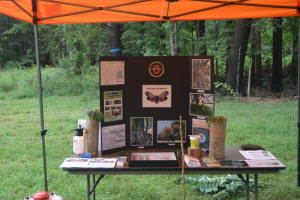Naturalist says Illinoisans can help slow spread of invasive species
 Send a link to a friend
Send a link to a friend
 [September 12, 2024]
(The Center Square) – An invasive species expert is calling on the
public to help slow the spread of intruders in Illinois. [September 12, 2024]
(The Center Square) – An invasive species expert is calling on the
public to help slow the spread of intruders in Illinois.
The University of Illinois Extension notes that the state’s centralized
location and extensive transportation networks provide many ways for
pests to arrive.
Chris Evans is an Extension Forestry and Research Specialist with
Illinois Extension based in southern Illinois.
“There is some level of negative consequence for the fact that they are
on the landscape so that’s really what makes them invasive is that they
alter the habitat, the ecosystem, something in a way that impacts our
native species or the functioning of our ecosystem,” said Evans on the
Everyday Environment podcast.
University of Illinois Extension staff have been monitoring the spread
and impact of the invasive Emerald ash borer since it first arrived in
the state in 2006. The invasive beetle is the main reason why Illinois
does not allow firewood to be transported more than 50 miles.
“Our native ash trees have zero ability to resist them and so what we’re
seeing is the ash borer is basically wiping out an entire genus of
trees,” said Evans.

[to top of second column]
|

The forestry section of the Pennsylvania Department of Military and
Veterans Affairs discussed forestry pests with employees of Fort
Indiantown Gap during an education event Sept. 13 on the
installation. - U.S. Army National Guard photo by Lt. Col. Angela
King-Sweigart

The Emerald ash borer is responsible for the death of an estimated
250 million ash trees across North America. Another pest discovered
in Illinois last year that is raising concerns is the Spotted
Lanternfly, which is also harmful to trees.
Evans said Illinoisans can help by actively surveying for invasive
species whenever outdoors and reporting sightings through EDDMaps or
iNaturalist.
“Identifying and mapping and letting somebody know will really help
us develop those priorities and know where the hotspots are that we
need to focus on,” said Evans.
[© 2024 Thomson Reuters. All rights
reserved.]This material
may not be published, broadcast, rewritten or redistributed.
Thompson Reuters is solely responsible for this content. |